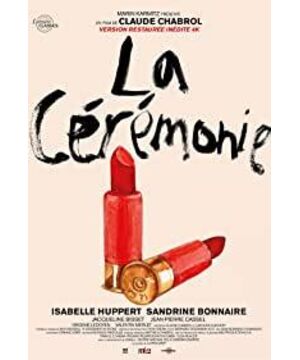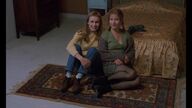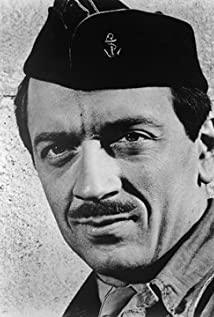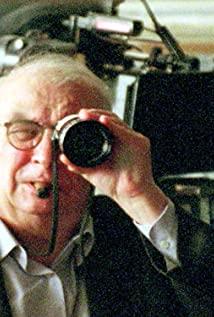In the summer of 2019, Director Feng Junhao stood on the podium at the Cannes Film Festival and thanked the French director Chabrol for his "Cold Festival", frankly confessing that this masterpiece inspired "Parasite". In 1995, "The Cold Ritual" was about a case of killing a door in a French country house. The maid Sophie and the postman Jeanna, each armed with a shotgun on New Year's Eve, killed the owner of the villa and his family of four.
Chabrol is one of the main players of the French New Wave movement, and "The Cold Ritual" is his masterpiece. Unlike earlier films, this story is not based on reality. Its theatrical premise is a collection of assumptions: sparsely populated countryside, prudent and courteous middle-class family, reorganization of divorced hostess with daughter and divorced hostess with son A family of four who respects each other and is cautious and indifferent. They hired a conscientious but paranoid maid. She suffers from dyslexia and cannot read and write. She uses lies and avoidance to cover up this defect in order to maintain her self-esteem. Originally there was nothing wrong, but the lonely and helpless maid got acquainted with the town’s postman Jeanna and became close friends. Both of them were both suspected of murdering blood relatives, and the postman was always hostile to the man of the villa and stealing his mail. . In order to keep her secret, Sophie threatened her employer’s daughter and was eventually dismissed in secret; Jeanna always mocked the hypocrisy of the donors. After a radical provocation, she was also deprived of her volunteer status by the church. On New Year’s Eve, the employer’s family watched an opera broadcast on TV, and the two of them took the opportunity to make pranks and make trouble for the owner’s family. Finally, the two pranksters met the owner of the family. Under emotional control, Sophie, who was playing around with her employer's shotgun, pulled the trigger, and then the two followed the momentum of the play to kill a family member. Four people were killed in an instant, with ruthless methods, but no surprises, until the end, the two did not know the crime.
The beginning of the story has a strong sense of fiction, but the climax and the ending fall on the logic of reality. Their savage hands are not abrupt and even thought-provoking. After all, it is the new wave generation who has maintained their most moving creative concept-the unpredictable behavior of people in reality.
"Parasite" tries its best to avoid hypothesis and replaces coincidence with premeditating. The parasitic greed continues to expand. After the chain of tricks, the whole family is parasitic in a master's house, and then encounters a more veritable "predecessor". In terms of the relationship between characters, it has taken away the possibility of reality and is completely constructed in the way of fables. Two families at the bottom struggling to fight for the right to be parasitic in an upper family, forming an unstable structure that will collapse at any time, and the families will fall into one another. The life and death situation. Feng Junhao's class fable uses the family to make the audience resonate easily in emotional identification, saving the identification cost derived from many assumptions, and the inherent emotional fetters are more precise and precise than "Snow Country Train".
In a nutshell, the two stories are both servants killing masters, but they have two very different ideas when unfolding. Sophie, the maid of "The Cruel Ritual", was deprived of the freedom to make friends by the owner Henry, the secret of dignity was revealed by the eldest lady Miranda, the opportunity to do good by the church priests and the right to fault the rich... this series Her suppression accumulated killing intent, and her self-esteem kept being pulled away. Finally, when Sophie realized that she could "kill", she pulled the trigger. The heroine's killing intent in "The Cold Ritual" is not triggered, but an instant awakening, with instinct before consciousness. Instinctively found that he had a gun in his hand and snapped it, just like the villager in "Seven Samurai" killed the robber. After the opponent fell, he realized that he could kill the robber, the ones he had always regarded as evil spirits. robber.
The driver of "Parasite" has already recognized the fact that he is at the bottom of the story at the beginning of the story. He has long been unfamiliar with his self-esteem, and the murder was stimulated by more specific incidents. The smell of the poor was disgusted by employers, the warm dwelling that carried the family was destroyed by floods, and the mental pressure after the murder was forced to work overtime as an Indian robber for the pleasure of the rich... All of this did not escalate, it just kept increasing. , After pulling the spring to the end, an external force is added at the end. The event that ultimately triggered was the death of his daughter and his deprivation of the right to rescue his daughter. The rationality of Feng Junhao's play is to gradually present all the events that can accumulate killing intent according to logic, so that the murderer's killing intent is clearly understood, and the audience does not need to think about it.
"Cold Ritual" is a violent resistance after dignity is trampled on, while "Parasite" has long abandoned dignity. In a warm family, the father has long lost dignity, and what they want is to live. It must be pointed out here that due to the different levels of civilization and the ethical nature of the society, it is difficult for "The Cold Ritual" to truly inspire "Parasite" in the environment-Sophie kills the lord and Jeanna provokes the donors. There is no such thing as "abomination." "In France in the story, Sophie and the employer have an equal employment relationship. Jeanna always provokes authority and ridiculed the hypocrisy of the middle class. The mocking of the property owners has been repeatedly emphasized, almost becoming Jeanne's signature behavior. The movie star Paul Newman adored by Jeanne was once a representative of Hollywood's "rebellious" image, such as "Blood on the Bar." Jeanna's mockery is a boast of self-esteem. Making fun of the middle class is almost invisible in "Parasite". The two families in "Parasite" both accept their fate and are content with their class status. Even if they may jump out of the bottom, they are inevitably intoxicated by the lazy nature of moments of ease. "Parasite" has always emphasized that after the class is solidified, "living for life" becomes a habit of survival. This premise carries a strong hypothetical meaning and is full of allegorical characteristics.
Director Bong Joonho received the award in France. Thank the senior French directors. Was he really inspired? Or was it polite out of Eastern courtesy? unknown.
Chabrol didn't clearly endorse Sophie and Jeanne with killing intent. A series of encounters were laid out, and no stimulus was given on the spot. After meeting, he shot a few words, and other family members didn't even have to say anything. In "The Grim Ritual", after Sophie shot Henry, the subtext was probably "It's okay to do this, let's do it!"
Sophie just maintained her self-esteem, even if she was fired, she didn't want to retaliate against her master, let alone murder. Chabrol didn't give Sophie the psychological process of "wanting to kill", but directly let Sophie realize that she could kill with a gun, and the instantaneous cognition burst out with destructive power, outside of Hollywood's narrative tradition. The character's mentality changes due to the change of the situation, and the emotion bursts instantly, forming a more realistic drama.
The postman Jeanna was not given the intent to kill either. Because of an accident, Jeanna lost her daughter forever, and others made her lose the possibility of justification, and regarded her as a vicious mother who killed her closest relatives. Unable to tell, she was sent to a strange town, and the postal system helped her stay away from rumors, and at the same time banished her. Jeanna volunteers in the church, helping to pick the donated clothes. Every time she is arrogant and happy, because she can take this opportunity to pick on those who claim to be generous, mock their hypocrisy, and get her A certain sense of equality has been vented by her who has always been stigmatized. However, this last exit was also blocked by the church. Even so, she was at best going to accompany Sophie to salute and spoof in Henry's villa to vent her anger. When Sophie realized that she could kill someone, Jeanna shot along. In the end, she died directly in a car accident and was hit by the priest's car, which was even more ironic. The only "stolen property" she took was the tape recorder, which played the "crime" records of her and Sophie, and was "endorsed" again. She would never have the opportunity to tell her own journey.
Sophie and Jeanna are also burdened by the rumors of killing their loved ones. When the two of them really kill, they both realize later. This is Chabrol's spicy theme first.
Too many stories like to pave the way for "want to kill" first, and then lay out the conspiracy. Whether the protagonist's crime plan can be executed step by step becomes the narrative motivation, drawing the audience and committing an accomplice. Hitchcock’s stylized suspense stories, fateful crimes in film noirs, and contemporary crime movies, the characters in the story seem to be instinct to commit crimes, and they all have criminal consciousness, and everyone’s criminal talents are not low. , The audience is not tired of it. For example, in "Genius Ripley", the audience began to worry about whether he could kill successfully after identifying with the male protagonist, and they were manipulated unconsciously.
Didn't understand why the status of "Cold Blood" is irreplaceable? Later, I realized that the author led us to discover the criminal impulse of the murderer from the real events of the real characters. Although they also "want to kill" at the beginning, unlike the deliberately created drama, they did not change after killing and returned to hollowness. In his daily life, it seems that killing is just an episode, stripped of the drama, killing people without thinking is chilling.
In "The Cold Ritual", Sophie was told what to do and how to do it right from the moment she appeared on the scene. She moved from one house to another. She rigidly implemented her own habits. Even "resistance" must be told what to do. The employer’s daughter Miranda is the most advocate of democracy and equality in the family, and she has been reminding Sophie that she cannot bear it. The postman Jeanna is even more so. She is always complaining about Sophie, reminding her of the time and freedom of being exploited. It seems that the person bullied by the capitalists is herself. The reminders of these people made Sophie gradually rebellious. She lacked active cognitive ability because of dyslexia, and she was "enlightened" by people around her. Even so, it is still not enough to deduce the bloody result of Sophie's murder.
Miranda pulled Sophie to play games because of boredom, which is a traditional quiz and tricky game. The game is an equal act to eliminate class differences. Miranda has always tried to treat Sophie equally, but this game has a premise-literacy, which makes Sophie lose the qualifications to be a player, and she has exposed in the game that she has been working hard. Covered up facts, scarred self-esteem was exposed, no more cover up. Miranda saw through Sophie's excuse and instantly confirmed that Sophie had been hiding her flaws. Her "knowledge" was originally a sympathy, but here it aggravated inequality. Because her knowledge stems from her higher education, she has learned, seen and heard before, so she can make this judgment. Then, Miranda taught Sophie in the tone of "knowledge": There are many people like you who can learn as long as the method is right. I can teach you, and Dad can send you to Paris to study... all of these kind concerns , Completely denied all the efforts that Sophie made: from knowing her own shortcomings to facing it, and then burdened with it, being discriminated against by people around her, struggling to walk, hiding herself, and trying to adapt to society. Miranda has always emphasized that "you can be reformed", but never thought of Sophie's situation. She has reformed rather than accepted people with defects, exposing her condescending stance.
Sophie lost control of her emotions and called Milan a slut in a short exposing manner, and threatened her to keep her secret. Mind is as simple as a child-I know your disgrace, let alone neither of us. Unexpectedly, Miranda could afford to lose, and she could let her secret of pregnancy be exposed and not be lost afterwards. But Sophie, poor Sophie, her secrets are exposed, and she has nothing. Sophie’s behavior was judged by her employer Henry (Miranda’s father) as "extortion". This accusation itself is very different, because the blackmailer is destined to be poorer and weaker than the blackmailed party. This accusation implies a disparate class stance. .
How important is it to Sophie to conceal that one cannot read or write? The director gave a reference later. Even in the face of her only friend and support-Jeanna, Sophie didn't say anything. Until her death, Jeanna didn't know that Sophie was illiterate. Jeanna professed to love reading, and took away "Wandering in the Dark Night" from Sophie's employer without authorization. She has the ability to make Sophie the envy of her. The borrowed book is deliberately emphasized. Jeanna said that her mother's name is the same as the author of the book Celina, which also implies the director's speculative cognition of the weak's crimes.
"The Cold Ritual" has written the crime scene in a realistic way. The assailant didn't know his intention to kill, it was Chabrol's brilliant pen. What's more valuable is that, despite Chabrol's theme first, he still portrays Sophie and Jeanne as concrete "persons" that are infinitely close to the real state, rather than "characters." When Jeanna and Sophie became friends, they felt equal to each other, and the unique understanding and acceptance between women emerged. They all pieced together each other's dark past, from provocation to ridicule, and treated each other as equals. Chabrol's care for the weak is like a spring rain, without traces, which is admirable and sentimental.
View more about La Cérémonie reviews











